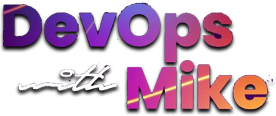Transition Into Cloud Now !!! | Who Can Learn Cloud In 2025
Do You Think Cloud Computing is for You?
Are you currently at a point where you’re wondering if you should invest the necessary time and attention to get yourself started in a career in cloud computing and DevOps? If so, you want to read this article to the end, as I’ll be sharing with you who can learn cloud computing this year, along with some practical steps to get started.
Now, what are some key things you must take note of regarding the cloud computing industry before deciding if you can actually be a good fit?
- The very first thing I want to highlight is that there is still explosive growth in the cloud industry. Many companies, products, and services are continuously being released that are cloud-dependent. For instance, artificial intelligence, which is the talk of the century, has much of its foundational services built on cloud platforms like Microsoft Azure, Amazon Web Services, Google Cloud, and others. Services in the Internet of Things, machine learning, and data science leverage cloud platforms for their underlying infrastructure. Because these services require cloud platforms, there is a vast demand for experts who can provision these services.
As a result, various job roles have emerged in this field, such as cloud engineer, DevOps engineer, security engineer, reliability engineer, and more. The first takeaway is that there is a significant demand for professionals in the cloud industry, as many companies are releasing cloud-dependent products and services.
- The second point I want to address is that cloud computing skills—particularly in DevOps—are very accessible to people without IT backgrounds. Many believe that if you don’t have an IT background, you won’t succeed in the DevOps or cloud space. This is a myth. I have trained many individuals with little to no IT experience, and through a six-month boot camp, they acquired the necessary skill set to pursue a career in cloud computing. So, do not be discouraged thinking that because you’re not from an IT background, you cannot start with cloud computing this year.
Cloud computing is very accessible because these cloud platforms are not typically taught as university courses. If you pursue a degree in computer science or electrical engineering, there is often no explicit course teaching you how to provision resources on Amazon Web Services, Microsoft Azure, or Google Cloud. These are industry-specific tools, and you must be in the field to learn them. If you are enthusiastic and disciplined about learning, you should consider starting a career in this field, even without an IT background.
- The third thing to note is that the cloud field is expanding into many new roles. If you search for “cloud engineer” or “cloud roles” on job platforms like LinkedIn, you will find numerous opportunities related to specific cloud platforms. I always recommend starting with Amazon Web Services (AWS) as a cloud platform because Amazon offers a vast array of resources and extensive documentation to help you understand its 200+ services. Moreover, Amazon is innovating in emerging technologies such as quantum computing, robotics, and satellite communications, positioning itself as a leader in these areas.
If you’re wondering which platform to start with, AWS is a great choice, given its extensive documentation and vibrant community. There are many resources, including videos and tutorials, available online. In fact, my channel has numerous videos on AWS.
Tip One
My number one tip for someone with no IT background is to enroll in an academy or boot camp that offers comprehensive DevOps training. Many people believe they can self-study, purchasing courses on platforms like Udemy or Coursera. However, the truth is that it can be challenging to study cloud computing effectively without any prior IT experience. It’s best to go through an academy with experienced industry tutors who can guide you through everything from foundational services to more advanced topics.
Tip Two
The second tip I recommend is to engage in practical projects. Enrolling in an academy without doing hands-on projects is counterproductive. No matter how much you pay or how many courses you take, if you lack practical experience, you won’t be job-ready, which is what most companies seek. Therefore, after completing a boot camp or training program, ensure you undertake numerous hands-on projects for every service you learn about.
Tip Three
Finally, the third tip is to be part of a community that encourages learning. You cannot underestimate the power of community. Being in a supportive environment allows you to share thoughts, collaborate with peers, and engage with mentors who can help clarify concepts you may struggle with.
If you want me to recommend specific academies to help you get started, please leave a comment in the section below. I can recommend the best options based on your location. Additionally, I run my own academy where I provide tutoring, but I can guide you to the best fit for your needs.
